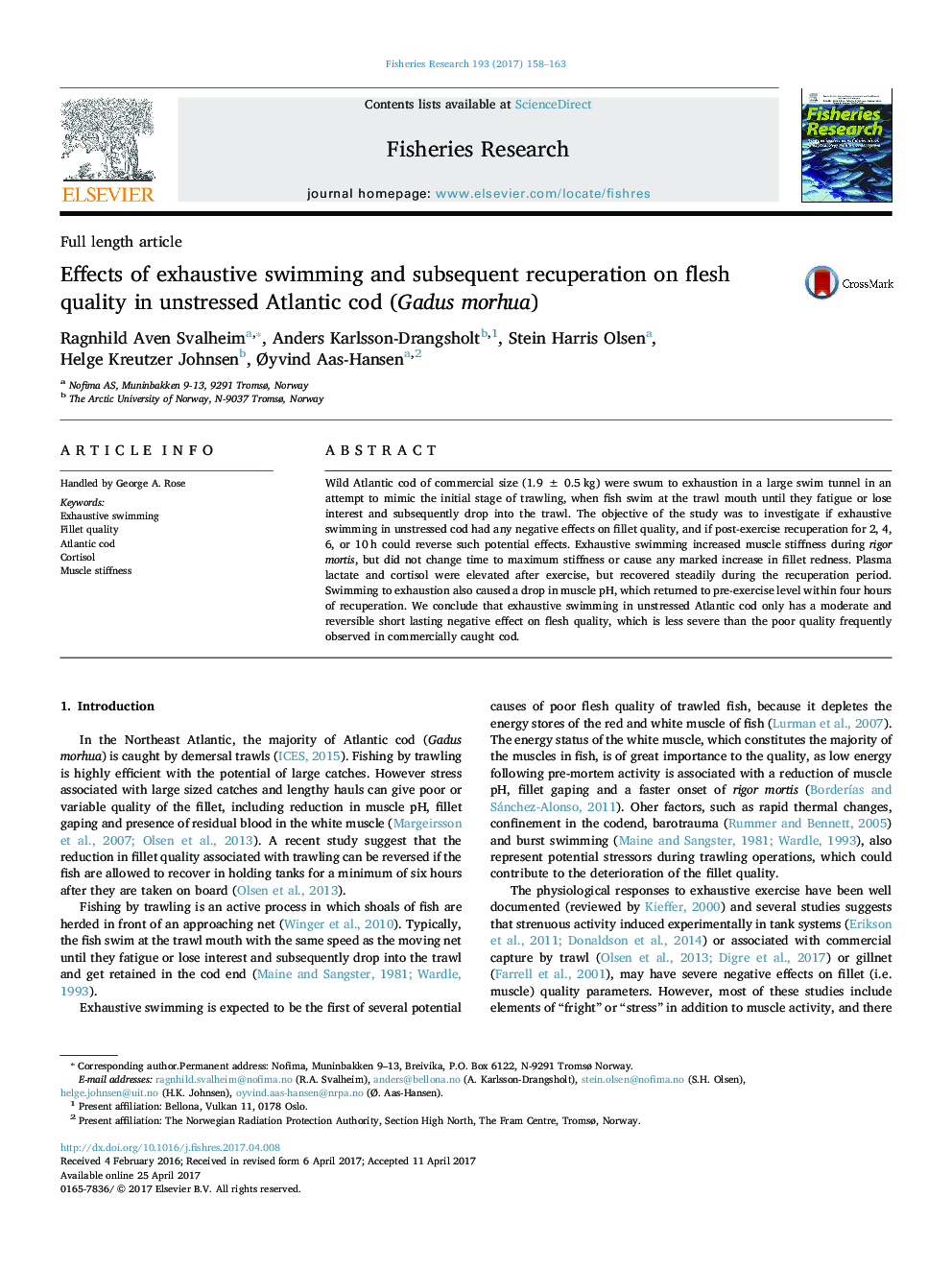| Article ID | Journal | Published Year | Pages | File Type |
|---|---|---|---|---|
| 5765484 | Fisheries Research | 2017 | 6 Pages |
â¢Exhaustive swimming had a moderate negative effect on flesh quality of cod.â¢The reduction in fillet quality was reversed after recuperation for 4 h.â¢The reduction of fillet quality in this study is less severe than for trawled cod.
Wild Atlantic cod of commercial size (1.9 ± 0.5 kg) were swum to exhaustion in a large swim tunnel in an attempt to mimic the initial stage of trawling, when fish swim at the trawl mouth until they fatigue or lose interest and subsequently drop into the trawl. The objective of the study was to investigate if exhaustive swimming in unstressed cod had any negative effects on fillet quality, and if post-exercise recuperation for 2, 4, 6, or 10 h could reverse such potential effects. Exhaustive swimming increased muscle stiffness during rigor mortis, but did not change time to maximum stiffness or cause any marked increase in fillet redness. Plasma lactate and cortisol were elevated after exercise, but recovered steadily during the recuperation period. Swimming to exhaustion also caused a drop in muscle pH, which returned to pre-exercise level within four hours of recuperation. We conclude that exhaustive swimming in unstressed Atlantic cod only has a moderate and reversible short lasting negative effect on flesh quality, which is less severe than the poor quality frequently observed in commercially caught cod.
